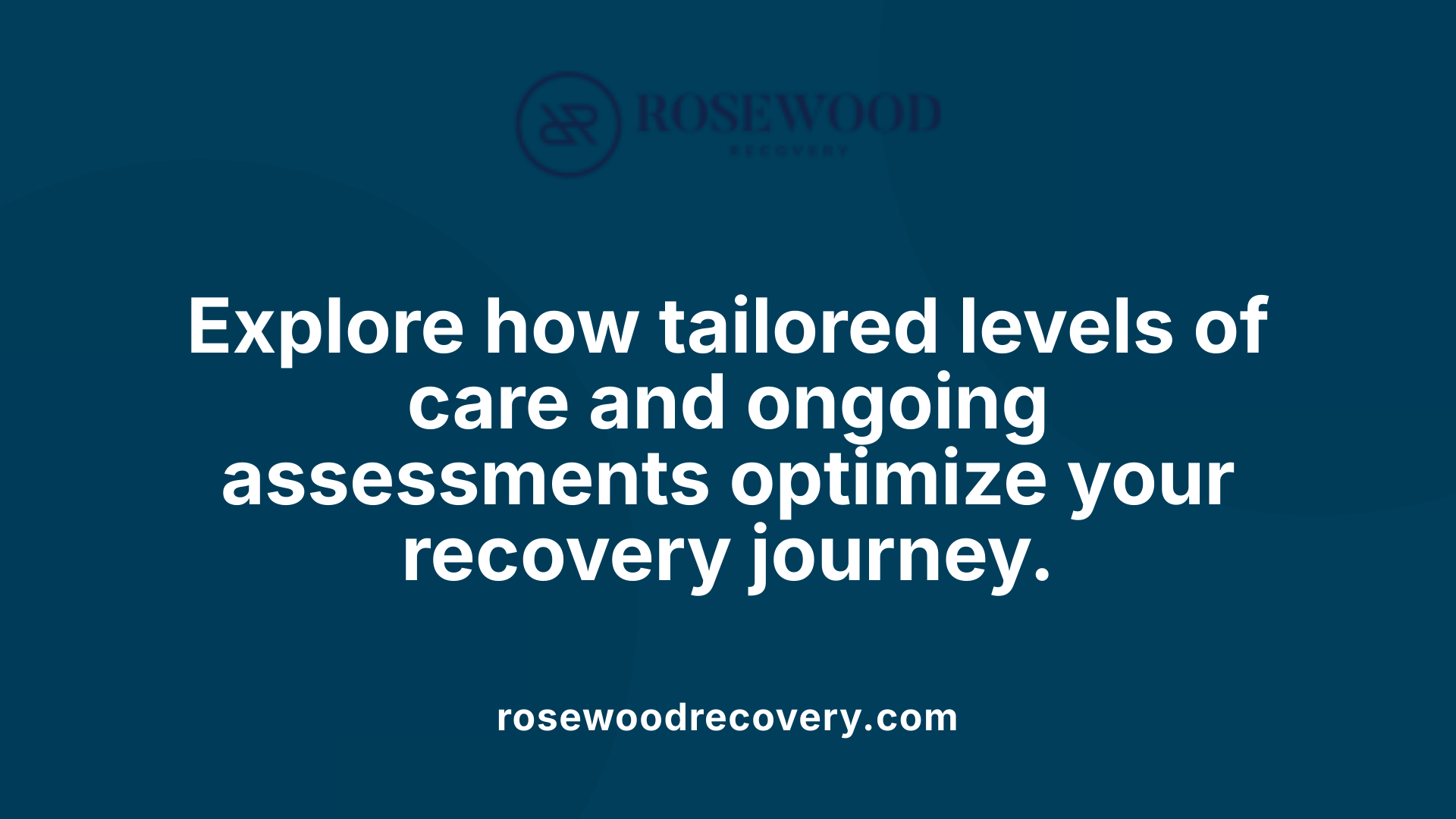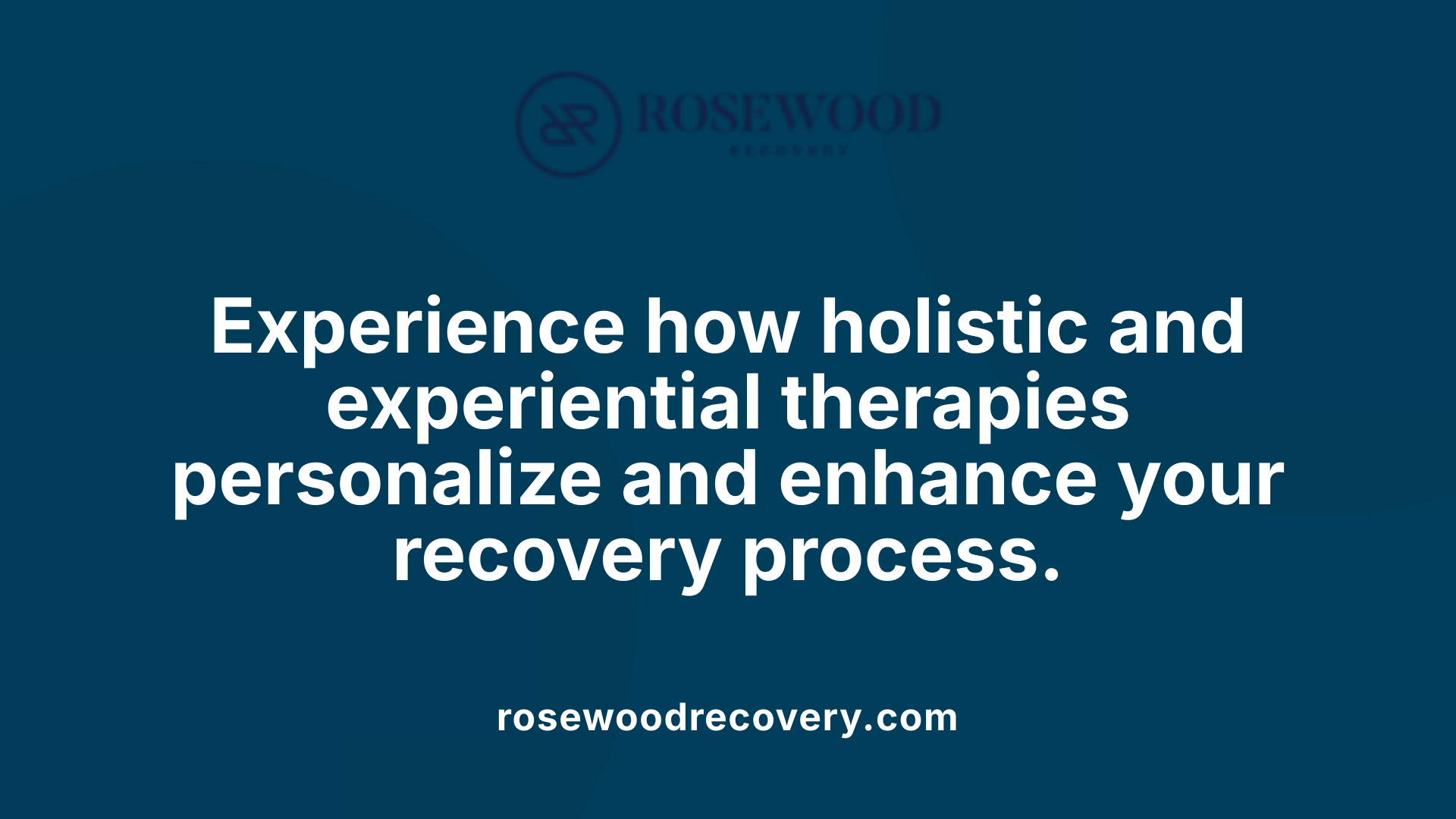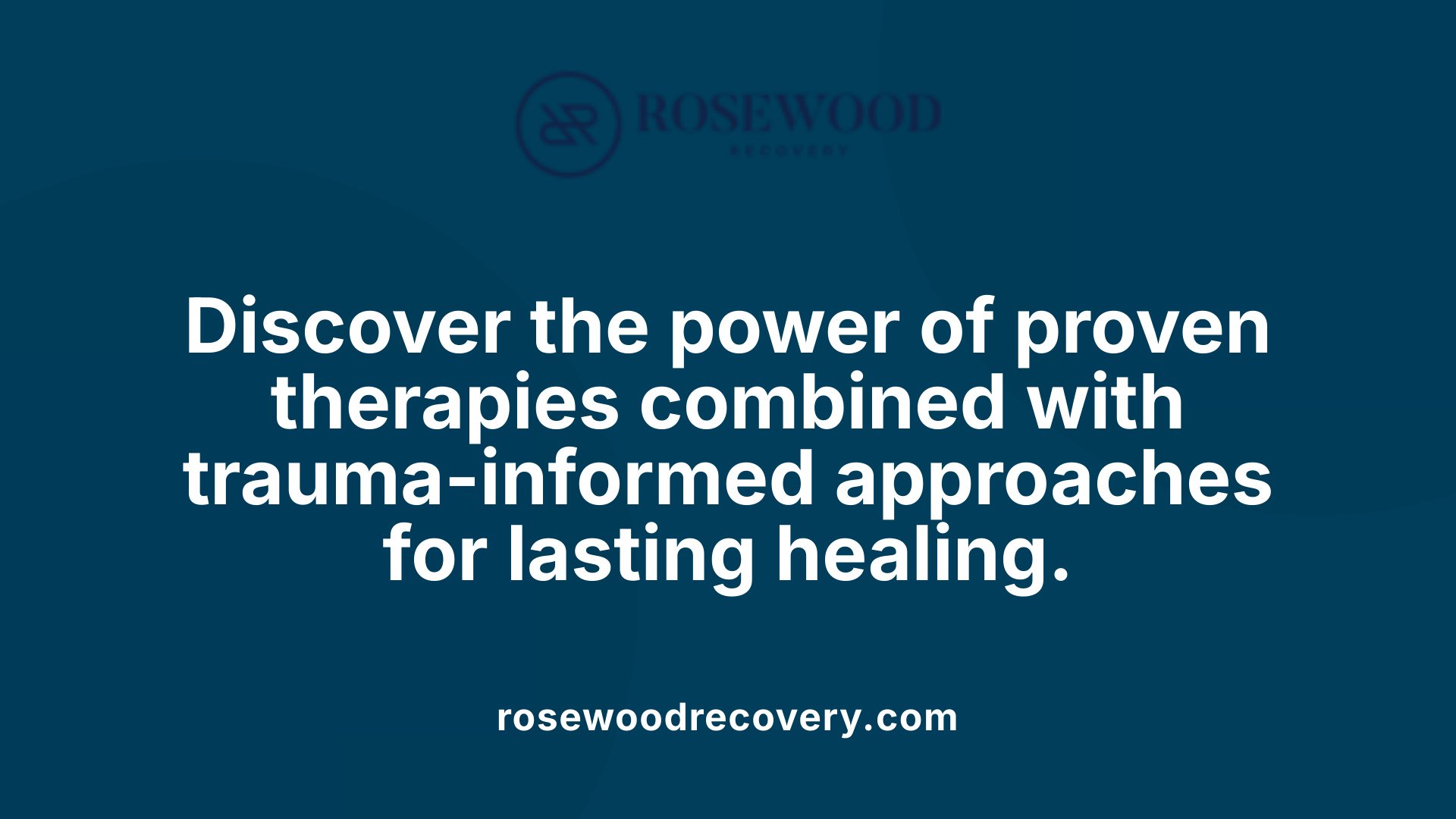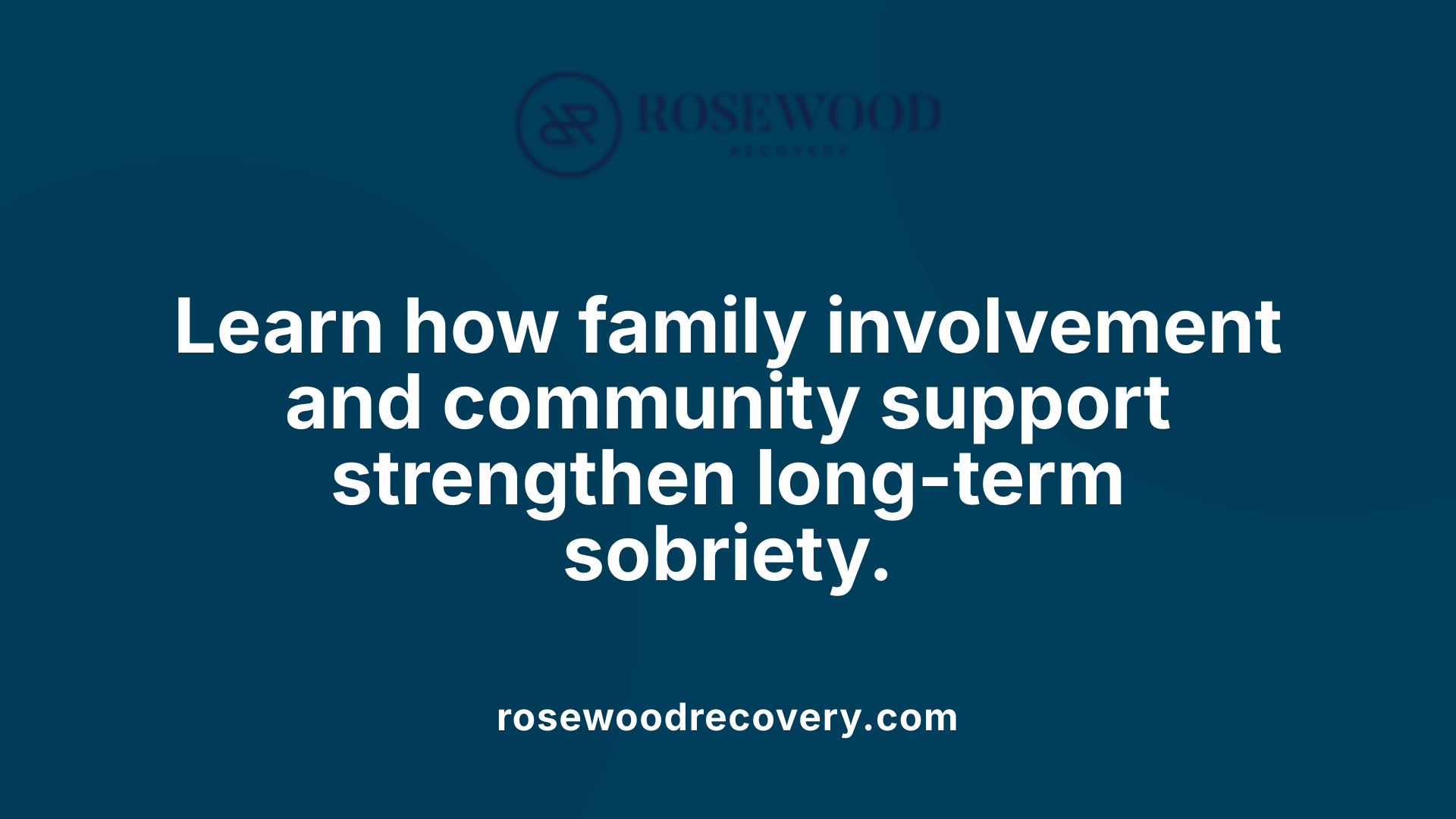Understanding the Importance of Tailored Treatment in Addiction Recovery
Addiction is a complex, deeply personal challenge that requires equally nuanced and individualized treatment approaches. Rosewood Recovery specializes in creating customized plans that address each client’s unique circumstances, promoting more effective and sustainable recovery outcomes.
Holistic and Individualized Assessments at Rosewood Recovery
Why is personalized care and therapy important in addiction recovery?
Personalized care and therapy are essential components of effective addiction treatment because they recognize that each individual’s journey to recovery is unique. At Rosewood Recovery, comprehensive evaluations form the foundation for creating tailored treatment plans that address specific physical, psychological, and emotional needs.
These multidimensional assessments involve gathering detailed client-specific data. This process includes understanding the severity of the addiction, co-occurring mental health issues such as anxiety or depression, and personal life circumstances. By evaluating these factors, clinicians can develop targeted strategies that go beyond generic approaches.
The benefit of this personalized approach is that it actively engages the patient in their recovery process. When treatment aligns closely with their goals, preferences, and challenges, individuals are more likely to participate fully and adhere to therapeutic activities. This increases the chance of long-term success and reduces the risk of relapse.
At Rosewood, the treatment process begins with a thorough evaluation that includes physical health checks, mental health screenings, and detailed personal interviews. This allows for the collection of comprehensive data, which informs the development of customized interventions.
In addition, the assessment process is ongoing. As patients progress, their treatment plans are reviewed and modified based on their evolving needs. This flexibility ensures that therapy remains relevant and responsive, maximizing recovery outcomes.
The approach at Rosewood exemplifies how multidimensional and client-specific data gathering leads to more effective and compassionate care. It underscores the importance of understanding each person as a whole, considering all aspects of their health and life circumstances.
For those interested in exploring this personalized approach further, searching “Rosewood Recovery comprehensive individual assessments” provides a wealth of detailed information about their evaluation procedures and tailored treatment strategies.
Multidisciplinary Teams for Tailored Treatment Plans
What strategies and approaches does Rosewood Recovery use to customize treatment plans?
Rosewood Recovery adopts a highly personalized approach to designing treatment plans, ensuring that each individual’s unique needs are met effectively. The process begins with comprehensive assessments that evaluate the client’s specific disorders, symptoms, concerns, and personal preferences.
Once these evaluations are complete, multidisciplinary teams are assembled. These teams include various professionals such as doctors, therapists, dietitians, and other specialists who collaborate to develop a tailored treatment strategy. This collaborative care model allows for a wide range of therapeutic modalities—traditional therapies, innovative techniques, and experiential activities—to be incorporated into the plan.
Flexibility is a major component of their strategy. Treatment levels are customized, moving between inpatient hospitalization and outpatient services depending on the client's progress and evolving needs. Throughout treatment, ongoing monitoring and regular goal-setting sessions help to evaluate the effectiveness of interventions.
Treatment plans are continuously adjusted based on feedback, progress, and changing circumstances, ensuring that each individual receives responsive and adaptable care. This person-centered model emphasizes active listening and integrating the client’s goals and feedback into ongoing treatment, fostering higher engagement and better outcomes.
By emphasizing comprehensive, personalized care, Rosewood Recovery maximizes the potential for success in recovery, addressing physical, mental, and emotional aspects of each person’s journey.
Additional details about multidisciplinary treatment planning at Rosewood Recovery
| Aspect | Description | Additional Info |
|---|---|---|
| Assessment | Comprehensive evaluation of client’s health and needs | Includes symptoms, concerns, and preferences |
| Team Composition | Includes various health professionals | Doctors, therapists, dietitians, specialists |
| Modalities | Traditional, innovative, and experiential therapies | Yoga, meditation, counseling, holistic approaches |
| Treatment Levels | Ranges from inpatient to outpatient | Adapted to client progress |
| Monitoring & Adjustment | Regular review and modifications | Ensures responsiveness and effectiveness |
| Client Involvement | Goals and feedback integration | Promotes engagement and personalized care |
This approach demonstrates how Rosewood Recovery ensures that treatment is not only tailored but also flexible, holistic, and centered on each individual’s path to recovery.
Flexible Levels of Care and Continuous Evaluation

What are the different levels of care available for addiction treatment, and how do they support recovery?
Addiction treatment typically offers various levels of care tailored to the severity of the individual's condition and specific needs. These include inpatient hospitalization, outpatient programs, and partial hospitalization.
Inpatient care involves 24-hour residential support, providing intensive treatment in a secure setting. It is especially suitable for severe substance use disorders or when a safe, structured environment is necessary.
Outpatient care offers flexibility, allowing individuals to live at home while attending scheduled therapy sessions. This approach suits those with moderate addiction levels or as a step-down after inpatient treatment.
Partial hospitalization programs (PHP) provide a middle ground, combining daytime therapeutic activities with the ability to return home in the evenings. They support ongoing recovery while maintaining some independence.
How is ongoing assessment used to ensure the right treatment progression?
Continuous evaluation is essential in addiction treatment. Regular assessments help clinicians monitor progress, identify emerging issues, and adjust treatment plans accordingly.
These assessments might include physical health check-ups, psychological evaluations, and discussions about mental state and emotional well-being. Using validated tools and feedback from patients ensures an accurate understanding of their evolving needs.
By tracking progress through ongoing assessment, providers can determine whether a patient is ready to transition between care levels, such as moving from inpatient care to outpatient services. This progression supports continuous recovery efforts and prevents relapse.
Why is adapting treatment stages important for successful recovery?
Adapting treatment based on ongoing assessments makes the recovery process more effective by aligning care with individual progress and circumstances. It recognizes that recovery is not linear and individuals' needs change over time.
For example, a person starting with inpatient care due to severe addiction may shift towards outpatient or outpatient-based programs as they stabilize. This flexibility respects personal growth, co-occurring mental health issues, and life responsibilities.
Having the ability to scale treatment up or down ensures that clients are neither overwhelmed nor left without support. Personalized adjustments—such as adding medication-assisted therapy or introducing new therapeutic modalities—can target specific challenges and promote sustained abstinence.
In sum, tailored care distinguished by regular evaluation fosters a trusting environment where recovery strategies are responsive, relevant, and more likely to produce lasting results.
Holistic and Experiential Therapies Supporting Personalization

Why is personalized care and therapy important in addiction recovery?
Personalized treatment approaches are vital in addiction recovery because they recognize the unique circumstances of each individual. No two people experience addiction in the same way, which means that effective treatment must be tailored to address their specific challenges, history, and personal goals.
Holistic therapies such as yoga, meditation, and nutrition counseling form a core part of personalized care. These approaches help improve physical health and emotional well-being, creating a balanced foundation for recovery. For example, yoga and meditation can reduce stress and anxiety, while nutrition therapy supports physical healing and boosts overall health.
Art therapy and trauma therapy add further layers to personalized treatment plans. Art therapy offers a creative outlet for expressing feelings and processing trauma without words, which can be especially useful for individuals reluctant to open up in traditional talk therapy. Trauma therapy directly targets unresolved issues that may fuel addictive behaviors, helping individuals address the root causes.
Understanding and addressing root causes such as trauma, mental health issues, or emotional wounds are crucial for lasting sobriety. Treatments are designed to go beyond just managing addiction symptoms, aiming instead to heal underlying psychological and emotional factors.
Most treatment programs, including those at specialized clinics like Rosewood and Luxe Recovery, emphasize individualized care. These programs incorporate various therapies aligned with each person's needs, preferences, and life circumstances.
Incorporating diverse therapies proves effective because it addresses the physical, psychological, and behavioral factors involved in addiction. Continuous assessment and flexibility in treatment maintain relevance and effectiveness throughout the recovery process.
In summary, holistic and experiential therapies support personalized addiction treatment by promoting emotional healing, addressing underlying causes, and fostering overall well-being, greatly increasing the chances for long-lasting recovery.
Integration of Evidence-Based Therapies and Trauma-Informed Care

What strategies and approaches does Rosewood Recovery use to customize treatment plans?
Rosewood Recovery employs a highly individualized approach to creating treatment plans tailored to each person's needs. Initially, they conduct comprehensive assessments, including diagnostic testing and detailed health evaluations. These help identify the specific conditions, symptoms, and concerns of each client.
Once evaluated, a multidisciplinary team of healthcare professionals is assembled to develop the personalized treatment plan. This team combines various treatment modalities—ranging from traditional therapies to innovative and experiential methods—to ensure a well-rounded approach.
Flexibility and adaptability are central to their process. As the individual progresses, the treatment plan is regularly reviewed and adjusted based on ongoing feedback and changing needs. The focus remains on a person-centered model, where client goals, preferences, and progress guide the therapeutic interventions.
The treatment levels vary from inpatient hospitalization to outpatient services, depending on the severity of the disorder and the individual’s evolving condition. This tailored strategy enhances engagement and effectiveness, supporting long-term recovery.
What evidence-based therapies are incorporated in addiction treatment?
At centers like Rosewood Recovery, evidence-based therapies such as Cognitive Behavioral Therapy (CBT) and Motivational Interviewing are standard components. These approaches have been proven effective in addressing addiction and co-occurring mental health issues.
Other therapies include the Matrix Model, which combines behavioral therapy with education and relapse prevention strategies, and Eye Movement Desensitization and Reprocessing (EMDR), particularly useful for trauma-related conditions.
How does a trauma-aware approach enhance treatment?
Trauma-informed care is fundamental in addiction treatment. Recognizing that many individuals with substance use disorders have experienced trauma, programs incorporate trauma-aware practices. This means creating a safe, respectful environment where clients feel empowered and understood.
Therapies like trauma-focused EMDR or dialectical behavior therapy (DBT) are often employed to help process traumatic memories. This integrated approach not only addresses addiction but also targets underlying trauma, reducing the risk of relapse and promoting emotional healing.
Overview of treatment strategies
| Therapeutic Approach | Description | Focus Area |
|---|---|---|
| Cognitive Behavioral Therapy (CBT) | Helps clients identify and change negative thought patterns | Substance use, mental health issues |
| Motivational Interviewing | Enhances motivation for change and commitment to recovery | Engagement and readiness |
| Matrix Model | Combines behavioral therapies, education, and relapse prevention | Drug dependence, relapse risk |
| EMDR | Processes traumatic memories using guided eye movements | Trauma and PTSD |
| Trauma-Aware Approach | Ensures safety and empowerment in therapy, integrates trauma treatment | Trauma-related disorders |
By integrating these therapies within a trauma-informed framework, treatment centers like Rosewood Recovery foster comprehensive healing that addresses both addiction and its underlying causes, improving long-term recovery outcomes.
Personalized Aftercare and Relapse Prevention Strategies
Why is personalized care and therapy important in addiction recovery?
Personalized care and therapy play a vital role in successful addiction recovery. Every individual’s experience with addiction is unique, shaped by their personal history, mental health, trauma, social environment, and physical health.
Tailoring treatment plans to these specific factors allows professionals to target the root causes of addiction effectively. This approach not only addresses symptoms but also promotes lasting changes by focusing on what each person needs most.
Engaging patients with customized strategies boosts their motivation and commitment to recovery. When individuals see that their individual concerns are understood and addressed, they are more likely to stay engaged with treatment plans.
Additionally, ongoing evaluation and adaptation of therapy ensure that care remains relevant as recovery progresses. This flexibility helps manage new challenges or changes in the individual’s circumstances, increasing the chances of sustained sobriety.
In essence, personalized therapy is about creating a comprehensive, tailored strategy that significantly improves longer-term outcomes, making it a cornerstone of effective addiction treatment.
Supporting Families and Community Integration in the Recovery Process

How does adapting treatment to meet each client's unique circumstances enhance recovery?
Personalized treatment plans are vital in addiction recovery because they directly address the individual's specific needs, challenges, and circumstances. When care is tailored, it becomes more relevant and effective, fostering greater engagement from the client.
By customizing approaches—such as modifying cognitive-behavioral therapy (CBT) techniques or integrating creative therapies—patients can process their emotions more deeply and develop stronger resilience. This personalized approach helps build trust and safety within the therapeutic relationship, which encourages openness and participation.
Flexible frameworks, like eclectic therapy, allow clinicians to select and adjust strategies based on ongoing feedback and the client’s cultural background. This adaptability ensures that treatment remains relevant and supportive throughout different phases of recovery.
Overall, individual-focused treatment creates a supportive environment that addresses unique challenges, boosts motivation, and enhances the likelihood of long-term sobriety. Tailoring care also improves adherence, reduces dropout rates, and increases the chances of successful recovery.
What role do family therapy and community support resources play?
Family therapy is an essential component, helping loved ones understand addiction, improve communication, and rebuild trust. It involves educating families about substance use, addressing codependency, and developing supportive dynamics, which are crucial for sustained recovery.
Community support resources, such as local support groups and community-based organizations, provide ongoing encouragement and practical assistance outside formal treatment settings. These resources connect individuals and families with peer support, mentoring, and educational programs.
Support networks foster a sense of belonging and accountability, helping individuals stay committed to their recovery goals. They also promote social reintegration, reducing isolation and fostering healthy lifestyle habits.
How does ongoing engagement benefit recovery?
Continued interaction with treatment providers, support groups, and community services helps maintain momentum in recovery. Ongoing engagement offers emotional support, accountability, and opportunities to address setbacks early.
Regular follow-up Sessions and participation in community events reinforce positive habits and help individuals develop a sustainable, sober lifestyle. This continuous involvement ensures that treatment is not just a one-time event but a lifelong process of growth and healing.
Including family and community in the recovery ecosystem enhances resilience, reduces relapse risks, and nurtures a supportive environment where individuals feel seen, understood, and motivated to thrive.
Long-Term Success Through Personalized Support and Engagement
Why is personalized care and therapy important in addiction recovery?
Personalized care plays a vital role in addiction recovery because it recognizes that each individual’s journey is different. No two people experience addiction in the same way, which means that a one-size-fits-all approach often falls short.
Effective treatment begins with understanding a person’s unique history, mental health issues, physical health, and personal goals. For example, someone with co-occurring mental health conditions such as anxiety or depression will need integrated care that addresses both issues simultaneously. Similarly, those with severe addiction might require inpatient programs combined with medication-assisted therapies like methadone or buprenorphine.
Tailoring treatment plans ensures that interventions are directly relevant to the individual’s needs. This increases motivation, improves engagement, and encourages adherence to the recovery process. When people see that their treatment aligns with their personal circumstances, they are more likely to stay committed and actively participate in therapies like individual counseling, group sessions, or family involvement.
Moreover, personalized treatment allows for ongoing assessment and flexibility. As patients progress or face new challenges, their plans can be adjusted to reflect their evolving needs. This adaptability is crucial in maintaining long-term recovery and reducing relapse risks.
By focusing on what matters most to each person, personalized care offers a comprehensive approach that targets the root causes of addiction—be it trauma, mental health, or social factors. This not only boosts the chances of initial success but also supports sustained sobriety over time.
In essence, individualized treatment strategies foster a supportive environment where recovery is tailored, practical, and sustainable, helping individuals build healthier, addiction-free lives that last.
Empowering Lasting Change Through Individualized Care
Rosewood Recovery’s dedication to tailoring each treatment plan exemplifies a commitment to meeting clients where they are in their recovery journey. By integrating comprehensive assessments, diverse therapies, continuous evaluation, and community and family involvement, Rosewood creates a personalized, holistic environment that significantly enhances the chances of lasting sobriety. Their emphasis on flexible, client-centered strategies ensures that each individual receives the right care at the right time, fostering greater engagement, better outcomes, and empowering clients to reclaim their lives with confidence.
References
- National Helpline for Mental Health, Drug, Alcohol Issues
- Tailoring Rehab To Individual Needs
- Tailoring Your Recovery Plan for Better Outcomes ...
- Services
- Rosewood Treatment Programs for Eating Disorders
- Rosewood Alcohol and Drug Inpatient Rehab Centers in ...
- Substance Use Treatment Centers in Levittown, PA



.jpeg)
